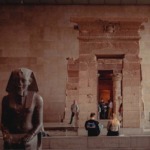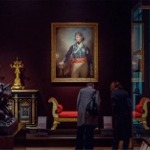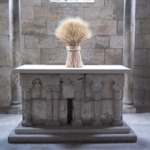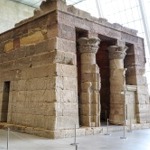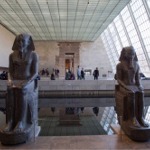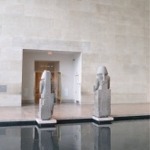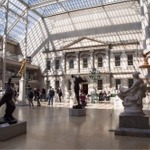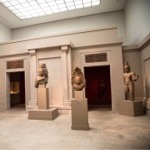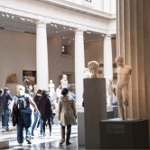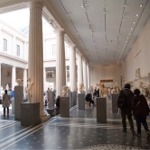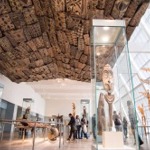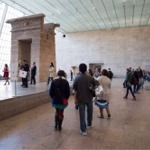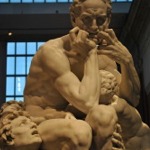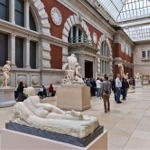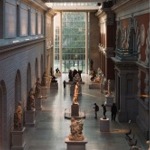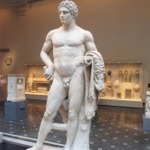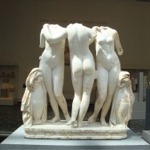Metropolitan Museum of Art
Photo Gallery
The Metropolitan Museum of Art
The Metropolitan Museum of Art, commonly known as the Met, is one of the world's largest and most prestigious art museums located in New York City. It was established in 1870 and is situated along Museum Mile on Fifth Avenue, in Manhattan's Upper East Side.
The Met's vast collection spans over 5,000 years of human history and encompasses artworks and artifacts from cultures around the globe. With more than 2 million works of art, the museum showcases a diverse range of artistic disciplines, including paintings, sculptures, drawings, prints, photographs, textiles, decorative arts, arms and armor, costumes, musical instruments, and archaeological artifacts.
The museum is housed in a magnificent Beaux-Arts building, designed by Calvert Vaux, Jacob Wrey Mould, Richard Morris Hunt, and Richard Howland Hunt in various stages, and expanded over the years to accommodate its growing collection. The main building features iconic architectural elements, such as the grand entrance stairs and the Great Hall.
Within the Met's collection, visitors can explore art from ancient civilizations, including Egypt, Greece, Rome, and the Near East. There are also extensive galleries dedicated to European art, spanning from the Middle Ages to the present day, featuring masterpieces by renowned artists such as Rembrandt, Vermeer, Van Gogh, Monet, Renoir, and Picasso.
The museum's American Wing showcases American art, including paintings, sculpture, and decorative arts from colonial times to the early 20th century. The Asian Art Department displays an extensive collection of artworks from China, Japan, Korea, South Asia, and the Islamic world. Additionally, the Met has collections dedicated to African, Oceanic, and Indigenous art, as well as modern and contemporary art.
In addition to its permanent collection, the Met hosts numerous temporary exhibitions that explore specific artists, art movements, historical periods, or cultural themes. These exhibitions often attract international acclaim and draw visitors from around the world.
The Met also offers educational programs, lectures, concerts, and performances, providing visitors with a rich cultural experience beyond the art on display. The museum's library and archives contain a vast collection of books, manuscripts, photographs, and other research materials for scholars and researchers.
To make the museum more accessible to the public, the Met operates on a suggested admission policy for New York State residents and NY, NJ, and CT students, allowing visitors to pay what they wish. This policy aims to ensure that art remains accessible to all, regardless of financial means.
Overall, the Metropolitan Museum of Art stands as an iconic cultural institution, celebrating the diversity and richness of artistic expression throughout human history. Its expansive collection and commitment to education and public engagement have solidified its status as a world-renowned museum.
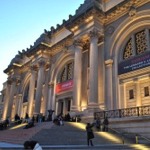
MET Fifth Avenue facade
The Fifth Avenue facade of The Metropolitan Museum of Art in New York City at twilight.
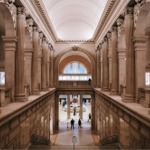
Grand Stairway
A colonnaded staircase known as the Grand Stairway that leads down to the Great Hall.
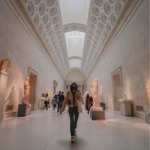
Greek and Roman Galleries
People in one of the Greek and Roman galleries at the Metropolitan Museum of Art in New York City.

George Washington's crossing of the Delaware
General George Washington's crossing of the Delaware River with the Continental Army on the night of December 25–26, 1776, during the American Revolutionary War.
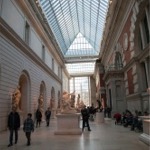
European Sculpture Court
People in the Carroll and Milton Petrie European Sculpture Court.
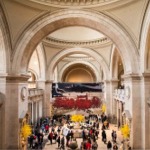
The Great Hall
The Great Hall that was designed in the Beaux-Arts style by Richard Morris Hunt and his son, Richard Howland Hunt.
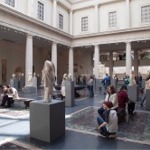
Roman and Greek Galleries
A large gallery enclosed by a colonnade filled with stone sculptures from ancient Rome and Greece.
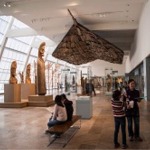
Oceanic Art
Oceanic Art in The Michael C. Rockefeller Wing at the Metropolitan Museum of Art in New York City.
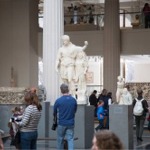
Statue of Dionysos
A Statue of Dionysos leaning on a female figure (Hope Dionysos) housed in the Greek and Roman galleries.
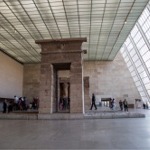
The Temple of Dendur
The Temple of Dendur at the Metropolitan Museum of Art in New York.
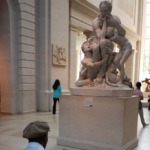
Ugolino and His Sons
An artist drawing the statue of Ugolino and His Sons in the European Sculpture Court.
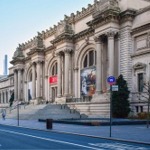
MET Fifth Avenue Facade
The Fifth Avenue facade of The Metropolitan Museum of Art in New York City.

European Sculpture Court
The European Sculpture Court. The statue in the forefront of the image is Ugolino and His Sons.
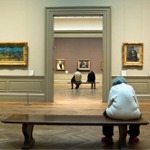
European Painting Galleries
People sitting in one of the European painting galleries. Claude Monet, Edgar Degas, Édouard Manet, Goya, Paul Cézanne, Rembrandt, Vincent van Gogh, etc.
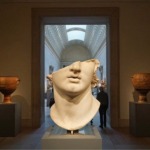
Alexander the Great
A fragment of a colossal marble head thought to be that of Alexander the Great.



